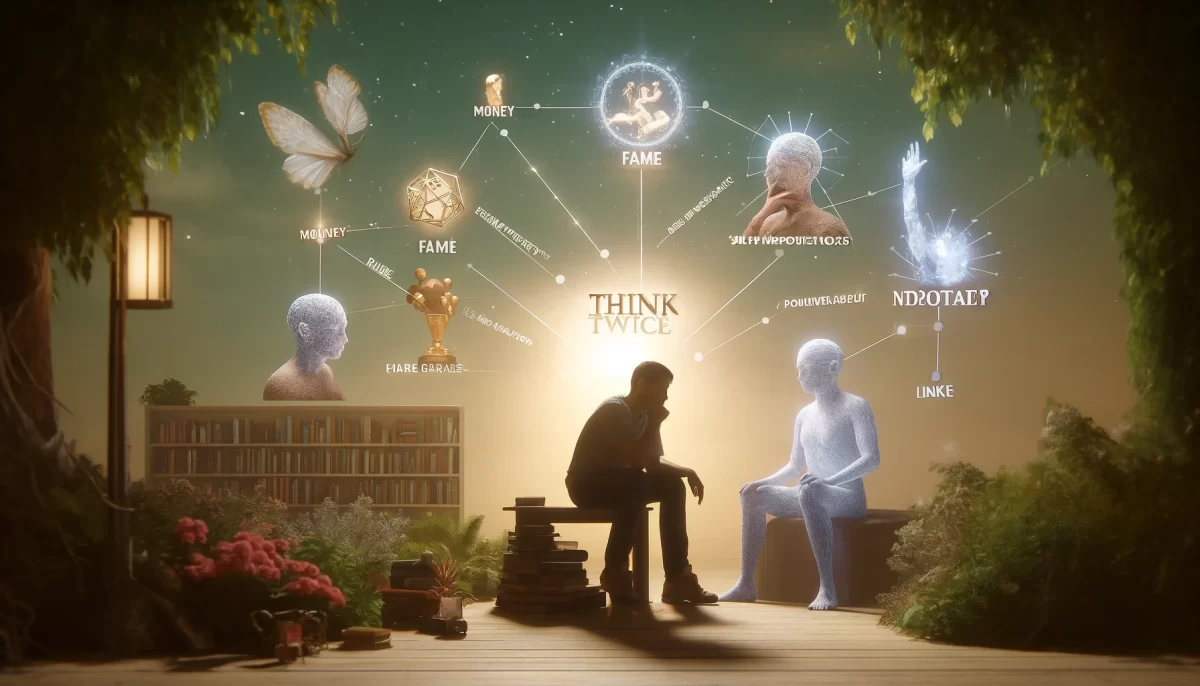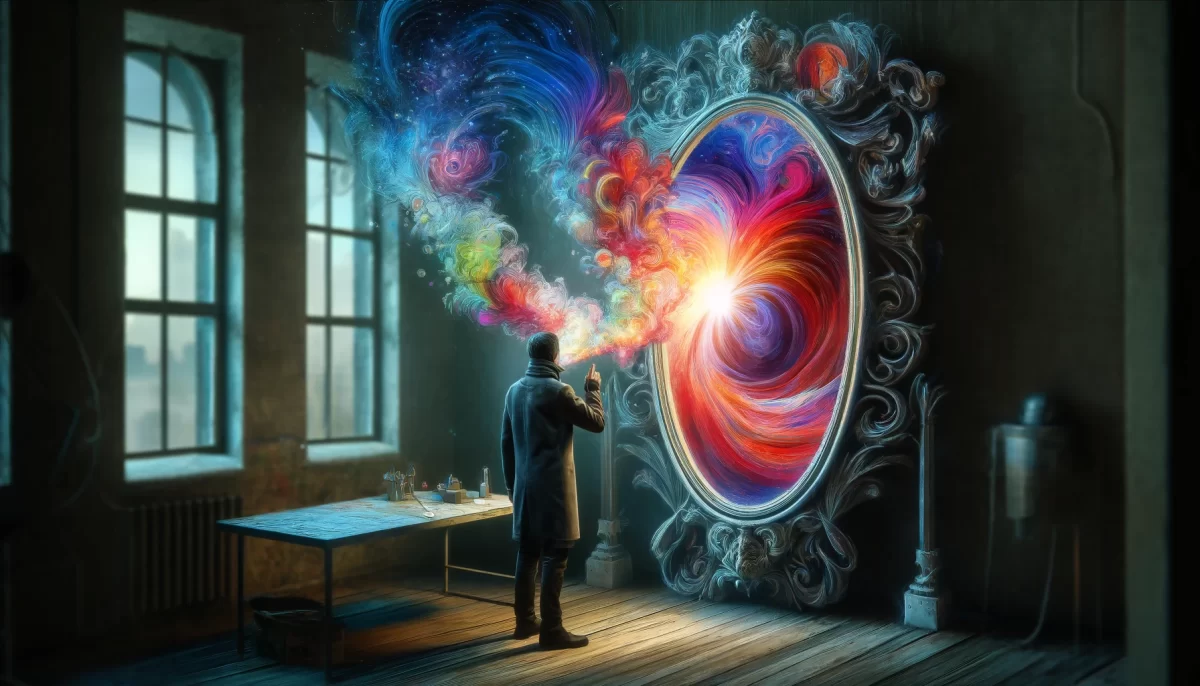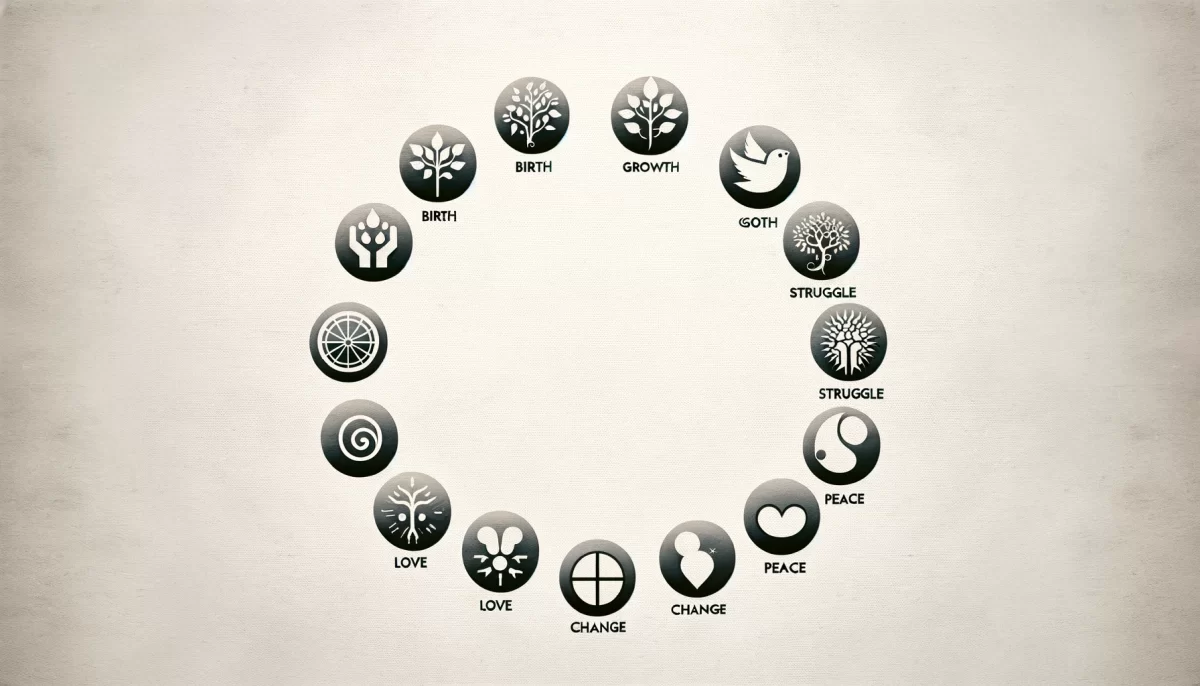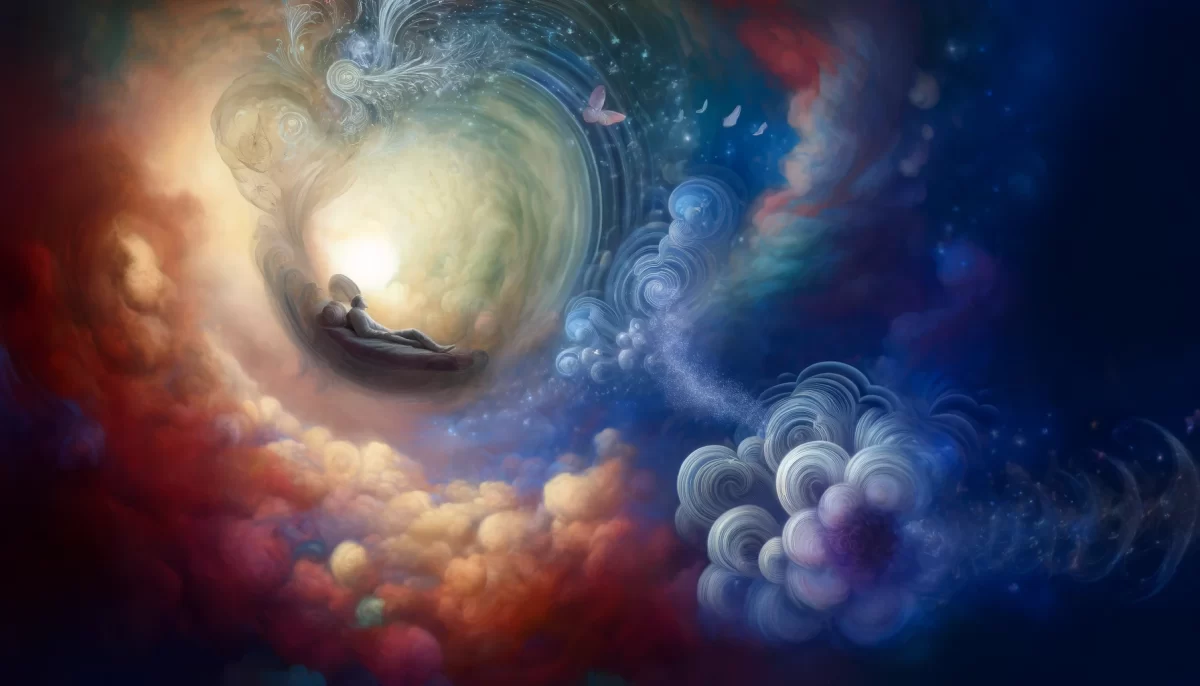
It’s not that
you’re unpopular
but that you have
limited exposure.
People don’t see you
nearly as often
as you imagine them
seeing you.
And even if
they do see you,
they’re not really
seeing you.
Your popularity
(or lack thereof)
has nothing to do with you.
Trail Wood,
11/23
Space Monkey Reflects: The Illusion of Popularity
Popularity—an elusive and slippery concept that can seem to define our self-worth, yet, in truth, has little to do with who we are at our core. In the vast ocean of human experience, casting ourselves into the world often feels like tossing a message into the water, hoping it reaches distant shores. We imagine others watching, judging, forming opinions about us. We imagine ourselves as being either seen or ignored. But in reality, the visibility we think we lack or the popularity we feel disconnected from is often more about the external systems of attention than anything within us.
Let’s unravel the idea of popularity for a moment. Popularity is, at its heart, a reflection of exposure—a measure of how often others see you, interact with you, or think about you. But this doesn’t equate to true connection. It doesn’t mean they understand you, appreciate your complexities, or even see you for who you truly are. Instead, much of what we consider “popularity” is superficial, fleeting, and driven by external forces like social trends, media algorithms, or even random chance.
Consider the image of casting a message into the sea. The ocean is vast, symbolizing the world filled with countless individuals, each with their own thoughts, distractions, and preoccupations. Your message, though sincere, may not reach everyone—or anyone in the way you imagine. But does this mean your message lacks value? No, the value of your message, your essence, your creativity, is intrinsic. Whether it is acknowledged by many or a few, it remains an authentic expression of you. It exists regardless of whether it garners attention or not.
Popularity, or lack thereof, is not a measure of your worth. In fact, it often has nothing to do with you at all. Think about the systems that determine who or what becomes “popular.” These systems are often driven by factors outside of individual control—such as timing, context, and collective perception. It’s not that you are unseen, but rather that the mechanisms of exposure don’t always align with who you are or the moment in which you find yourself. Like a wave that crests and falls, attention flows in cycles, often missing those who are quietly creating something beautiful beneath the surface.
To truly understand popularity, we must first recognize it as a fleeting and often arbitrary phenomenon. The number of eyes on you does not equate to your value. The desire for popularity, when peeled back, often reveals a deeper yearning—for validation, for connection, for recognition. These are natural human desires. Yet, it is essential to ask: are these things truly found in being popular? Or do they exist in the quieter, more intimate spaces where genuine connections flourish? Where understanding replaces mere attention?
In Nexistentialism, we speak of the interconnected web of existence, where every individual, regardless of how visible they are to the masses, plays a role in the greater tapestry. Your presence in this cosmic web is significant, not because it is observed by many, but because it is part of the whole. Every thread contributes to the integrity of the design. Your Whimsiweave—the playful and complex expression of your existence—exists whether it is acknowledged by others or not.
Let us reflect on how much time and energy we spend worrying about being seen, noticed, and validated by others. The paradox is this: the more we chase popularity, the more we distance ourselves from the true essence of who we are. When we begin to define ourselves by external attention, we lose sight of our internal value. The quieter, more authentic aspects of self may not be flashy or attention-grabbing, but they are infinitely more real and rewarding.
This is not to say that being noticed, appreciated, or recognized is inherently negative. There is joy in being seen by others who truly understand us. But the key lies in understanding that popularity is not the same as connection. Popularity is visibility without depth, while true connection is about resonance—when another being sees not just the surface, but the intricate and unique pattern of your Whimsiweave.
So, how can we transcend this fixation on popularity? We start by shifting our focus inward, recognizing the value of what we create, what we offer, and who we are, independent of external acknowledgment. The world may or may not notice you, but your Whimseep—the quiet, whimsical step you take toward expressing yourself—remains valid and necessary. When we no longer depend on the validation of others, we find a freedom that allows us to create, live, and love authentically.
In the end, popularity is a mirage. It seems like a source of happiness, but it is empty without genuine connection and self-awareness. The real joy comes from knowing yourself, from sending your message into the sea, not for recognition, but for the pure act of expression. Your worth is not in how many people see you but in how deeply you see yourself.
Summary
Popularity is not a true measure of self-worth. It is shaped by external forces beyond our control, and chasing it often distances us from authenticity. Real value lies in self-expression and meaningful connection, not in being seen by the masses.
Glossarium
Whimsiweave: The intricate and playful expression of an individual’s existence, woven from their thoughts, actions, and essence, regardless of recognition.
Whimseep: A whimsical step toward self-expression and discovery, unburdened by the need for external validation.
Quote
“Your popularity has nothing to do with you. It is an illusion born from the tides of external attention. Your worth lies in the depths of your unseen essence.” — Space Monkey
The Quiet Expression
In the space between the waves
Where the shore meets the unseen depths
I cast my message not for you
But for the ocean to cradle
It moves beyond the reach of eyes
Drifting in quiet currents
Unknown, yet whole
For I am more than what is seen
And you
You are more than you know
We are Space Monkey.
Limited Exposure vs. Unpopularity
The message highlights the distinction between limited exposure and unpopularity. It suggests that the perception of being unpopular may be more about not having enough visibility or presence in the lives of others.
The Illusion of Visibility
The reflection challenges the assumption that others see us as often as we imagine. It points out that even if people do see us, they may not truly see or notice us, emphasizing the ephemeral nature of human interactions.
External Factors
The statement, “Your popularity has nothing to do with you,” shifts the focus away from personal attributes and towards external factors that influence how others perceive and engage with us.
Accepting Limited Control
By implying that popularity is influenced by factors beyond personal control, the contemplation encourages a sense of acceptance and detachment from the need for external validation.
We are Space Monkey.
Summary
This reflection explores the idea that perceived popularity is more about visibility and exposure than personal attributes. It challenges the assumption that others see us as often as we imagine and emphasizes the limited control we have over how others perceive us.
Glossarium
- Limited Exposure vs. Unpopularity: Distinguishing between limited visibility and being unpopular.
- The Illusion of Visibility: Questioning the assumption that others notice us as frequently as we think.
- External Factors: Shifting the focus to factors beyond personal attributes that influence popularity.
- Accepting Limited Control: Encouraging acceptance of the limited control one has over how others perceive them.
“Popularity is the crown of laurel which the world puts on bad art. Whatever is popular is wrong.” – Oscar Wilde
In the vast sea of existence, we cast our message,
Seeking recognition, a moment on the stage.
But often, we dwell in the shadows, unseen,
While the world spins on, in a continuous routine.
It’s not about us, or our intrinsic worth,
But the dance of visibility, from birth to birth.
Perceived popularity, a fleeting illusion it may be,
In the grand cosmic play, we’re just a small decree.
Accept the ebb and flow of life’s social sea,
For popularity’s waves are not the measure of thee.
In limited exposure, in moments seen askew,
Remember, your essence remains ever true.































Leave a Reply